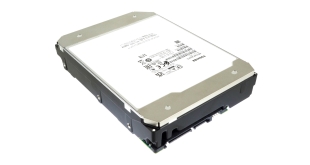It was almost a year ago that the world's weather patterns combined to cause the tragedy of the Thailand floods. Alongside the loss of life, Western Digital's hard drive production was knocked for six and the world suffered huge increases in price. As KitGuru predicted, summer 2012 saw prices return to pre-tragedy levels, but now they are going further.
.
KitGuru sees the cuts at Aria and gets the urge to back up vital files.
While some high street stores would have been significantly more expensive, the majority of the retailers that a KitGuru reader is likely to consider managed to keep their pricing for a 1TB drive below £120 as 2011 drew to a close.
Now that all seems like a dim and distant memory. While Seasonic and Hitachi enjoyed a sudden surge in the price of smaller drives, the underlying market pressure has been on the move to much bigger capacities. Plants that will produce large volumes of 3TB and 4TB drives, have been in the pipeline for a long time and, small price hike to one side, their time has come.
All things considered, hard drive capacities really come down to the packing density of the surface material and how many discs you can spin at 7,200rpm without a data-corrupting wobble setting in. The disks do not really change that much, neither does the idea of a read/write head flickering across the surface. Only the density with which data is packed on a platter – and how many platters are spinning – are really relevant.
Hitachi's Deskstar 7k4000 for example, uses 5 platters to offer you 4TB of storage. When it first arrived on our shelves around the end of March, some UK stores wanted close to £300 for this monster drive. Today, you can pick up this high-capacity drive for just over £203 from Aria.
If you're not sure about that 4th terabyte, you can opt for a 3TB Seagate Barracuda for just over £108.

.
KitGuru says: The scary part is that the 4TB will carry on dropping for a while yet. Aria seems to have taken the price lead right now, but even if other stores have been slower to implement price cuts – that doesn't mean they are not coming. We're still expecting to see a 4TB around the £150 mark by the end of the year. Fancy a PC with 8GB of RAM and 8TB of HDD?
Comment below or in the KitGuru forums.
 KitGuru KitGuru.net – Tech News | Hardware News | Hardware Reviews | IOS | Mobile | Gaming | Graphics Cards
KitGuru KitGuru.net – Tech News | Hardware News | Hardware Reviews | IOS | Mobile | Gaming | Graphics Cards



Hard drive manufacturers have lost the plot particularly when it comes to reliability, the fact that the market has moved towards a duopoly is also a source of concern. A hard drive is the bottleneck in any new PC build; forget about spending money on the fastest memory or the fastest processor, the priority for those seeking performance is a move over to solid-state drives throughout. Also, moving over to SSDs means improved reliability, power usage, noise/vibration, heat rejection. The I/O performance of HDDs hasn’t changed since the nineteen-eighties, this technology (HDD) has, arguably, held back advancements in computer technology and humanity for too long, and we can look forward to their coming demise with a sense that it is long overdue.
Good comment, Jane. These are exciting times for new technology.
However, I have personally never had a problem with mechanical drives, and the fact is, you have incredible amounts of storage on them. Sure, get SS HDD for your OS if you want. I have never had a SS HDD, but I hear they are fantastic.
But my system is still ridiculously fast. There are downsides to SS, don’t forget. I have 9 mechanical HDD which average 2TB each, and up to 4 external HDD. And everything just works quickly thanks to ReadyBoost drives, once your main apps like web browser are loaded once. Transferring terabytes takes maybe overnight, but how often do you move that much data.
I am personally looking forward to the future of mass storage and I don’t think today’s SS HDDs are the answer. Helium filled mech drives, DNA storage, holographic storages may be a distant reality or around the corner. I could use HDDs that make 4 TB seem like 4 MB.
I think the 3TB Seagate would be my personal choice, I don’t trust Hitachi drives as far as I can throw them, the last 2 I had were near brand new and failed in the same way, the first was a 250GB CinemaStar drive, brand new when I got it and after 36 hours, it returned a SMART error and 1444 bad sectors, then it failed from a spindle motor bearing problem that seized the platters. The second hitachi drive was a TravelStar 2.5′ laptop drive, that I got brand new fully boxed, after 6 measly hours, it displayed 10,000 bad sectors and the drive stopped mounting on bootup… extremely painful usage times, especially when I didn’t even get to installing the drivers for the OS before it failed and corrupted 90% of the data!